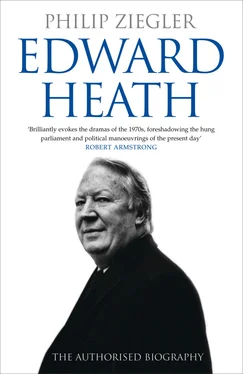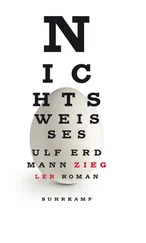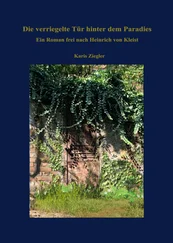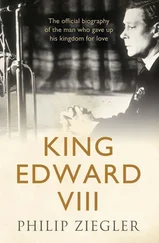Once back in Broadstairs Teddy began to attend St Peter’s Church of England School. James Bird, the assistant headmaster, described how he presented himself ‘neatly dressed and completely self-possessed’ and handed over a transfer form from his school in Crayford which lauded his attainments in reading and arithmetic. John’s first wife, Marian, who wrote a mildly malicious account of her brother-in-law after her marriage broke up, quotes Mr Bird as saying that Teddy ‘was not a good mixer. He was inclined to be aloof.’ It was not her intention to paint a sympathetic portrait of her former husband’s family but in this case she seems to have been recording faithfully. To another biographer Bird spoke of Teddy’s ‘general cleanliness and wholesomeness and a certain aloofness – even as a small boy he was self-contained and purposeful’. It is not an entirely attractive picture. The headmaster’s report that he was ‘a good boy…earnest, painstaking and thoroughly well-behaved’ is almost equally daunting. That Teddy was a good influence at St Peter’s can be taken for granted; whether he got much fun out of it or gave much fun to others is more doubtful. Once his mother went up to his room and suggested that he was working too hard and should come down to join the family. ‘Mother,’ Teddy replied severely, ‘sometimes I think you don’t want me to get on.’ Self-discipline and a conscious distrust of emotional display were as evident at the age of ten as sixty or seventy years later. On a radio programme his interviewer Mavis Nicholson once asked him whether the Heaths had been demonstrative as a family. ‘As we were by nature a close-knit family it wasn’t necessary to demonstrate great emotion towards each other,’ he replied. ‘If people are demonstrating their emotions, there must be something lacking in the background.’ 12
Emotional austerity did not preclude an early and intense love of music. A cousin of his mother’s first introduced him to the piano, he began to take lessons, and his parents, at what must have been considerable financial sacrifice, invested in an instrument for him to play on. He was not the most amenable of pupils. ‘I was always in too much of a hurry,’ he confessed, and he was irritated by his teacher’s insistence that he should master one piece before moving on to another. ‘What I was after was the musical experience, the opportunity to express feeling and emotion in pieces of different kinds, according to my moods.’ It would be an over-simplification to say that in music Heath found expression for the emotion of which he had deprived himself in his everyday life, but even at the age often or eleven he was indulging on the piano a freedom which he would not have allowed himself in personal relationships. It was his father who encouraged him most vigorously. If Teddy got bored of practising, William would urge him to fresh efforts: ‘Stick to it! Once you’ve mastered it, nobody can ever take it away from you. Your music will be a joy for life.’ His brother at one point also began to play the piano but, according to his first wife at least, was switched to the violin on the grounds that it would be nice for Teddy to have somebody to play duets with. John got no pleasure out of either instrument and renounced them at the first opportunity. 13
The local church of St Peter’s-in-Thanet had a large choir of twenty-four boys and twelve men, and Teddy, who had a good if not outstanding treble voice, joined it and was soon singing solos. After a few years he began to take an interest in the organ and before long was assisting the regular organist and understudying Miss Price, the lady who habitually played at the children’s services. ‘He is a great worker, very quick to learn, conscientious, and for his years a very capable musician,’ wrote the vicar, Alfred Tatham. Teddy was ‘thoroughly dependable; I have always found him a very present help in trouble’. Much later, Tatham’s widow remembered Teddy sitting beside Miss Price: she ‘was a very poor performer on the organ and I always thought you kept her straight’. For those oppressed by the vision of Heath’s unwavering rectitude it is only fair to say that he seems to have been a genuinely kind and helpful child. Mrs Matthews, the widow of a former vicar, remembered him as being ‘one of the nicest boys I have known’. When Mrs Matthews, by then aged 86 and wavering in her mind, invited him to a party to celebrate the return of her son, who in fact had been killed in action thirty years before, Heath scrapped the run-of-the-mill letter submitted by a secretary, wrote a long and friendly letter in his own hand and also wrote to Mrs Matthews’ surviving son to express his sympathy. 14
It was Mr Tatham who prepared Teddy for confirmation. His schoolfriend Ronald Whittall, who underwent the same ordeal, said that Tatham was the first man to have had a serious influence on either of the boys: ‘He opened our eyes to religion, to Christianity, and from that point on Teddy took his religion very seriously. I believe that it’s a deep-seated sense of religion which may – rightly or wrongly – make him think he’s a man of destiny.’ Extravagant though it may seem, the evidence suggests that Heath saw himself as a man of destiny several years before his confirmation; certainly, from the age of nine or ten he was hoarding every scrap of paper with the zeal of someone who is well aware that one day a momentous tale would need to be told. His religion did mean a great deal to him, however: partly because the Church and music were in his experience so closely related, more because the Christian faith and Christian values had been deeply inculcated in him when he was a child and he rarely saw cause to question them. The same interviewer who had asked him whether the Heaths were demonstrative as a family asked him whether he prayed. ‘Yes.’ ‘Is it very helpful to you?’ ‘Yes.’ ‘Why?’ ‘Because it is a spiritual communion.’ To an unbeliever such an answer might not seem to take matters much further but to Heath it was wholly satisfactory. He never doubted that, through prayer, he was in direct communication with God, and though religious problems did not preoccupy him, his faith provided a bedrock on which he believed he could construct his life. His mother at one time hoped he might enter the Church, then discovered how badly clergymen were paid and changed her mind. Even if she had not done so he would never have taken holy orders: he ‘did not feel a true calling’, he wrote in his memoirs and – a somewhat vainglorious reflection for a young man on the brink of life – such work would not have given him an opportunity ‘to shape the affairs of my country’. 15
By the time Teddy was confirmed he had already moved on to Chatham House Grammar School, a Local Education Authority school in the heart of Ramsgate. Chatham House was built of an aggressively red brick and from outside was entirely charmless. Its interior was little, if at all, more prepossessing. It was, however, an excellent school. It was geared to equip its pupils to make a living in a competitive world: accountancy was an optional subject and the emphasis in economics was on the practical rather than the theoretic. At the same time, however, it encouraged an interest in literature, regularly put on plays in which a high proportion of the boys performed some part, and organised vigorous debates, both within the school and against other schools in the vicinity. The fees were twelve guineas a year but about half the boys were on scholarships. Teddy sat for one of these and was successful. At the final interview the headmaster, H. C. Norman, asked him what he wished to be in later life. ‘An architect,’ said Teddy; an ambition which he had never admitted to his parents and which seems to have passed rapidly from his mind. The Kent Education Committee provided a further grant to cover travel and the cost of lunch, so the only expense left for the family was a guinea a year for music. William Heath was happy to provide for this, though making it a condition that Teddy would not take up music as a career. 16
Читать дальше












